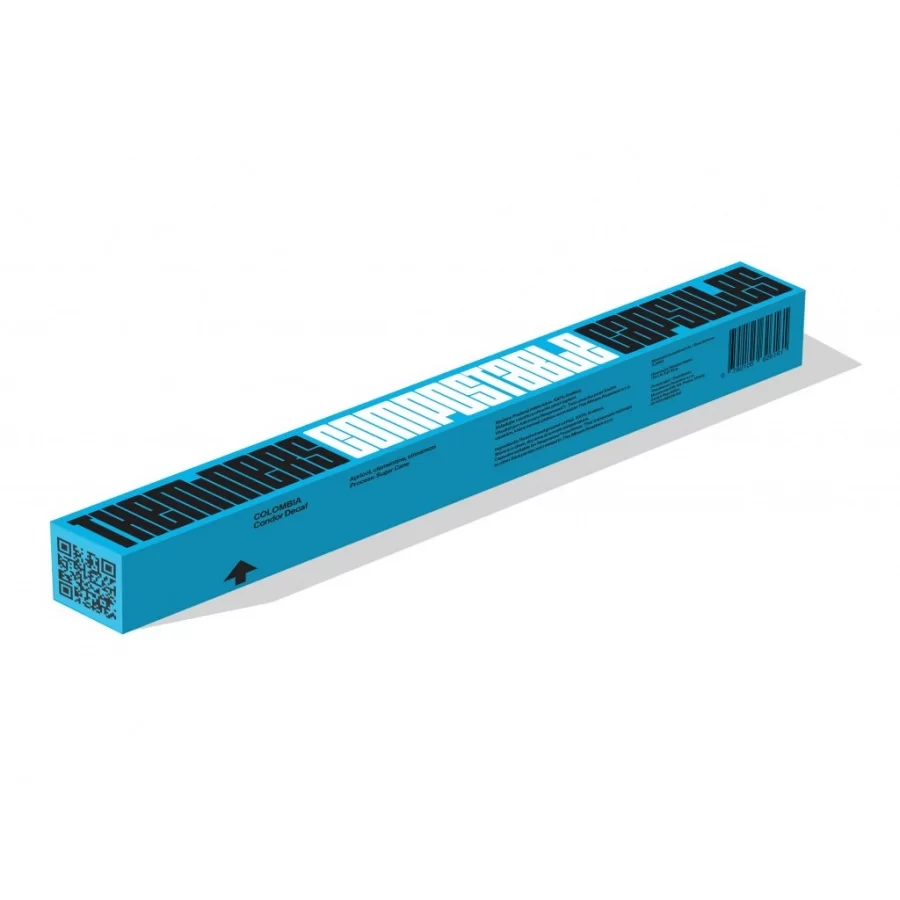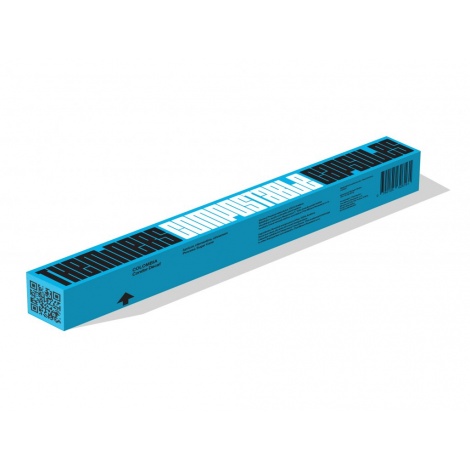⚡We deliver to all EU countries ⚡
⚡Until 17.11., Specialty Teas are 10% off with code tea10, don’t miss out ⚡

Your cart is empty
-
Coffee
-
 Our GourmetKáva
Our GourmetKáva
-
 GourmetKáva Specialty
GourmetKáva Specialty
-
 Specialty Coffee
Specialty Coffee
-
 Refillable capsules
Refillable capsules
-
 Coffee subscription
Coffee subscription
-
 Barista milk alternatives
Barista milk alternatives
-
 Decaffeinated coffee
Decaffeinated coffee
-
 BeanSmith's
BeanSmith's
-
 Dos Mundos
Dos Mundos
-
 Father's Coffee Roastery
Father's Coffee Roastery
-
 Francin Roasters
Francin Roasters
-
 Mamacoffee
Mamacoffee
-
 The Naughty Dog
The Naughty Dog
-
 Nordbeans
Nordbeans
-
 Nespresso® capsules
Nespresso® capsules
-
 Trung Nguyen
Trung Nguyen
-
 Green coffee (unroasted)
Green coffee (unroasted)
-
- Grinders
-
Alternative preparations
-
Coffee makers
-
Accessories
- Chocolate
- Tea
- DISCOUNTED
- For companies
-
About purchase
- Shipping and payment
- Coffee shop in Prague - Vinohrady
- Pick up point Pregue - Karlín
- Complaints, broken goods, return
- Product manuals
- Information about Christmas deliveries!
- Complaint Procedure
- Protection of personal data
- General Terms and Conditions
- Terms of use of the e-shop
- Recovery of used eletrical / batteries
- Cupping / coffee tasting at GourmetKava.cz
- Brands
-
About coffee
-
 Articles about coffee
Articles about coffee
- Our Coffee Why Us?
- Light and dark roasting coffee
- Comparison of Arabica coffee vs. Robusta coffee
- Trung Nguyen coffee, great Vietnamese coffee
- Green coffee - effects of unroasted coffee
- History of coffee
- Types of coffee trees and coffee production
- Fair trade coffee
- BIO coffee, organic coffee
- How and where is coffee grown?
- Production of instant coffee
- Cibet coffee
- Coffee acidity, what causes it
- 17 interesting things about coffee you don't know
- Casserole and Turkish coffee
- Decaffeinated coffee, production and effects
- Ways of roasting coffee
- How to store coffee and the most common mistakes
- Coffee as fertilizer, logr for fertilization and compost
- The 3 most expensive coffees in the world
- The strongest coffee in the world
- Coffee with reishi
- Coffee piccolo or caffeinated Yetti
- Painting with coffee
-
 Making coffee
Making coffee
- French Press
- Cold brew (cold coffee)
- Making coffee in a mocha teapot
- Making coffee in a cezve
- Coffee preparation in Vacuum pot
- Filtered coffee
- Espresso - complete manual
- Coffee preparation in Aeropress
- Preparation of green coffee with roasting
- Preparation of Vietnamese coffee
- How to fill refillable capsules with coffee
- Espresso drinks
- Chemex
- Iced coffee in 6 ways
- How to decalcify a coffee machine
- Flavours for coffee
- 7 most common mistakes when making coffee
- Urnex Cafiza - instructions for cleaning the coffee machine
- Preparation of flat white coffee
- Preparation of coffee frappé
- Preparation of batch brew coffee
- Preparation of espresso tonic coffee
- Preparing cappuccino coffee
- Coffee preparation caffe latte
- Preparing latte macchiato coffee
- Preparation of espresso macchiato
- Preparation of ristretto coffee
- Preparation of espresso doppio coffee
- Preparation of americano coffee
- Preparation of lungo coffee
- Preparation of homemade cupping - coffee tasting
- How to grind coffee without a grinder
-
 How to choose
How to choose
-
 Coffee and health
Coffee and health
- Fasting and coffee
- Coffee and osteoporosis
- Allergy to coffee
- Coffee and diabetes
- Coffee and the prostate
- Coffee and gallbladder
- Coffee and liver
- Coffee and diarrhea
- Coffee and high blood pressure
- Coffee for hair and skin
- Drinking coffee on an empty stomach
- Coffee in pregnancy and while breastfeeding
- Coffee, caffeine and work efficiency
- Coffee and cholesterol?
- Coffee and arthritis
-
 Preparation of tea
Preparation of tea
-
 Tea and health
Tea and health
-
 Articles about tea
Articles about tea
-
Coffee
Capsules The Miners Nespresso®- Colombia Condor DECAF
Capsules with a selection of decaffeinated coffee from The Miners (10KS). Suitable for Nespresso® machines.
Flavour: apricot, clementine, cinnamon
98% satisfied customers
Free transport over 79€
All in stock
Coffee roasted every week
Miners coffee capsules are designed for use with NESPRESSO®coffee machines. The aim is to offer great coffee to everyone, anywhere, anytime, with respect for nature.
The capsules are made from organic food and have a TUV certificate of compostability. This means they are safe for home composting.
- Acidity - low
- Bitterness - low
- Sweetness - higher
THE STORY OF COFFEE
EL VERGEL FARM
The El Vergel project was originally created to develop innovative practices that could improve the conditions of the families involved in the project. Marha Bayter is behind the project together with her sons Elias and Shady. The farm itself is located in the Tolima region, which is located on the slopes of the Andes Mountains in Colombia.
The main impetus for Elias and Shady to produce their own decaffeinated coffees was the realization that the vast majority of these coffees across Colombia are made from low quality raw material. That's why this new decaf is created using only quality coffees from El Vergel Farm. The result is a product that retains its unique character despite the processing.
REGION TOLIMA
The Tolima region is located in central-western Colombia. The word Tolima itself comes from the local indigenous language and translates as 'river of snow or cloud'. The region is located in the Cordillera Central, in the middle of three mountain ranges, which provides a wide range of microclimates suitable for growing high quality coffees. Coffee production is the main agricultural activity in the area, next to bean growing and cattle breeding.
The local soil is very rich in nutrients, offering ideal conditions for planting coffee trees. Local growers originally concentrated mainly on large yielding, lower quality crops. Over time, however, they began to move towards selective coffee and concentrate on working with microlots, which require considerably more care and resources. Quantity gradually gave way to quality and within a few years Tolima was at the forefront of the selective roasters' minds.
SUGAR CANE PROCESSING
In sugar cane processing, the coffee is first steamed to remove the parchment layer. During steaming, the moisture content increases and the beans gradually swell, making it easier to extract the caffeine. At this point, the total caffeine content is slowly reduced to the desired level by continuous washing using extractors derived from the fermentation of sugar cane. The beans are then rinsed with clean water and steam to remove the solvent residue from the innermost parts. Finally, the beans are dried until the original moisture content is reached. This method of processing is gentle on the grain as it avoids the use of high temperatures and excessive pressure, which can fundamentally disrupt the cellular structure of the grain.
Nespresso® is a trademark of Société des Produits Nestlé, S.A.
Reviews (0)

Capsules with a selection of decaffeinated coffee from The Miners (10KS). Suitable for Nespresso® machines.
Flavour: apricot, clementine, cinnamon































































